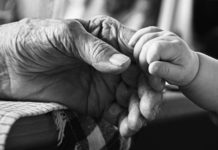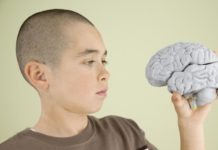Psychiatry: We Need a Truth and Reconciliation Commission in Mental Health
My name is Leah Harris and I'm a survivor. I am a survivor of psychiatric abuse and trauma. My parents died largely as a result of terrible psychiatric practice. Psychiatric practice that took them when they were young adults and struggling with experiences they didn’t understand. Experiences that were labeled as schizophrenia. Bipolar disorder. My parents were turned from people into permanent patients. They suffered the indignities of forced treatment. Seclusion and restraint. Forced electroshock. Involuntary outpatient commitment. And a shocking amount of disabling heavy-duty psychiatric drugs. And they died young, from a combination of the toxic effects of overmedication, and broken spirits.
“A Psychiatrist Opposes H.R. 2646: Here’s Why”
Writing for the Campaign for Real Change in Mental Health Policy, psychiatrist Coni Kalinowski implores others not to support the Murphy Bill “or any other legislation that encourages the use of involuntary outpatient commitment for psychiatric treatment.” “For 9 years, I trained and worked in Wisconsin where involuntary outpatient commitment has been used to force people into treatment for over 30 years, and I can tell you first hand, it does far more harm than good to individuals, it is very expensive, and it does not address the public health and safety issues that people hope it will.”
Researching the Link Between SSRIs and Violence
In 2010, my 25-year old son was prescribed Prozac for depression. After a psychiatrist doubled his dose, my son became acutely psychotic and had to be admitted to the hospital. Over the next twelve months, during which time he was treated with antidepressants and neuroleptics, my son had five further psychotic experiences. I thought it might be that my son was having difficulty metabolising the drugs.
Suicide Prevention for All: Making the World a Safer Place to Be Human
Like millions, I am sitting with the fact that one of the funniest people to grace the planet has died by his own hand. Robin Williams’ death has hit people of my generation, Generation X, especially hard. After all, his face flashed often across our childhood screens. Mork and Mindy episodes were a source of solace for me as a little girl, as I bounced around between foster homes and family members' homes, while my single mother cycled in and out of the state mental hospital, fighting to survive. I could laugh and say “nanu, nanu - shazbot” and "KO" and do the silly hand sign and forget for just a little while about living a life I didn’t ask for.
Compelled Disclosure of Campus Sexual Assault May Be Harmful for Survivors
The majority of universities require most or all employees to report disclosures of sexual assault, but these policies may be ineffective at addressing campus sexual violence and disempowering for survivors
Epidemiologists Decry Major Problems in US Psychiatric Practice
In an exchange published in the Journal of Clinical Epidemiology, researchers take turns highlighting major problems in the way psychiatry is currently practiced in the United States. In response to an article by Vinay Prasad calling for an insistence on randomized control trials in “evidence-based” medicine, Jose de Leon, from the Mental Health Research Center at the University of Kentucky begins the back-and-forth by pointing out that this type of evidence has been detrimental to the field of mental health.
“Antipsychotic Use in Youth Without Psychosis: A Double-edged Sword”
This month’s issue of JAMA Psychiatry ran an editorial commenting on recent research revealing that the majority of youth prescribed antipsychotics have not been diagnosed with a mental disorder.
“Dr. Lieberman and ’60 Minutes’”
Phil Hickey of Behaviorism and Mental Health picks apart 60 Minutes' segment interviewing E. Fuller Torrey (Untreated mental illness an imminent danger?), and APA...
Susie Orbach and Frederick Crews Debate Freud’s Legacy
In this piece for The Guardian, Frederick Crews, author of Freud: The Making of an Illusion, debates with psychoanalyst Susie Orbach about the merits of Freud's...
Spending on Social Services Improves Health Outcomes
Canadian study finds that social service spending is associated with a decrease in mortality and increase in life expectancy.
Why Social Media can Never Fill the Void in our Depressing Lives
From VICE: According to Marcus Gilroy-Ware, author of Filling the Void: Emotion, Capitalism & Social Media, society's widespread use of social media stems from and is exploited...
“I Was Just Following Orders”: a Seroquel Suicide, a Study Coordinator, and a “Corrective...
Out here in Minnesota, where the snow is gently falling, many of us are hunched over our computers, puzzling over a document just posted by the state Board of Social Work. It concerns the death of Dan Markingson (or as the document calls him, “Client #1”). Markingson, of course, was a young man under a commitment order who was coerced into a profitable Seroquel marketing study at the University of Minnesota over the objections of his mother, and whose condition spiraled downward until he committed suicide.
Call for an Investigation Into Psych Meds and Violence
The killing of 20 children and six adults in Newtown has triggered a search for some way of preventing these kinds of tragedies. The...
Black man Labeled with Schizophrenia Boiled to Death
From the Miami New Times: On June 23rd, 2012, four corrections officers at Dade Correctional Institution kept Darren Rainey, a black man labeled with schizophrenia,...
Research Finds Parents’ Trauma May Impact Children’s Health
Study uncovers some of the intergenerational consequences of adverse childhood experiences (ACEs).
“Medicare Drug Program Fails to Monitor Prescribers, Putting Seniors and Disabled at Risk”
ProPublica and The Washington Post have performed an investigation revealing that Medicare has failed to monitor the safety of the large quantities of drugs...
Researchers Warn of “Brain Atrophy” in Children Prescribed Antipsychotics
Researchers discuss the evidence that antipsychotic medications may cause brain atrophy in children, whose brains are still developing.
Training Program Decreases Police Force and Arrests for Mental Health Crisis Calls
Colorado police trained in crisis intervention infrequently use force or arrest individuals experiencing a mental health crisis and are likely to transfer individuals to a treatment facility.
Large German Anti-Stigma Campaign Shows Little Effect on Attitudes
“Overall, this study showed that the information and awareness campaign had almost no significant effects on the general public's attitudes toward people affected by either schizophrenia or depression,” the researchers, led by German medical sociologist Anna Makowski, wrote. “One could assume that deeply rooted convictions cannot be modified by rather time-limited and general activities targeted at the public.”
“Was Sexism Really Responsible for the FDA’s Hesitancy to Sign Off on Flibanserin?”
“The Food and Drug Administration’s approval of pharmaceutical treatment for low sexual desire in women has launched a heated debate over the dangers and benefits of medicalizing sex,” Maya Dusenbery writes in the Pacific Standard. Is “female Viagra” a feminist victory or a product of clever faux-feminist marketing by Big Pharma?
“As Suicide Rates Rise, Researchers Separate Thoughts from Actions”
“Suicide rates in the United States have been rising, especially among veterans and members of the armed forces. Traditional assumptions about why people kill themselves have not led to effective strategies for suicide prevention,” psychologist Craig Bryan tells Science News. “So in recent years, psychologists and others have been reconsidering basic beliefs about why people carry out the ultimate act of self-destruction.”
Chosen Name Use in Transgender Youth Linked to Reduced Depression and Suicide
The ability of transgender youth to use their chosen name is connected to reduced depressive symptoms and suicidal thoughts/behaviors.
“Big Pharma and the Big Push for Patients to Take Their Meds”
“The pharma industry loses tens of billions in worldwide sales each year when patients don’t fill, or refill, their prescriptions,” Rebecca Robbins reports for STAT. So...
Ritalin Used to be “Grandma’s Little Helper”
Eugene Raikhel reveals ads from 1966 where Ritalin, now prescribed largely for ADHD, was marketed as a “kind of mind antidepressant for housewives.” “I...
The Disturbing Link Between Frequent Nightmares and Suicide
From Science of Us: Over the past few months, multiple studies have linked frequent nightmares to increased risk for both suicidality and self-harm.
Article →



















